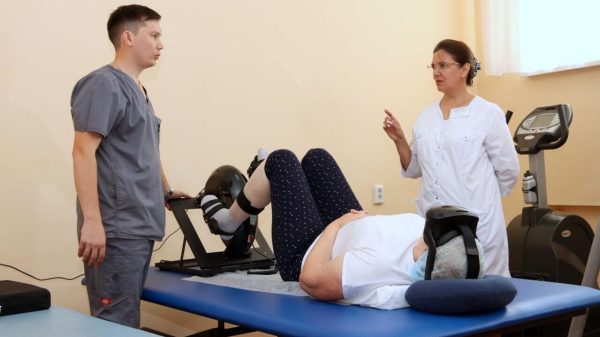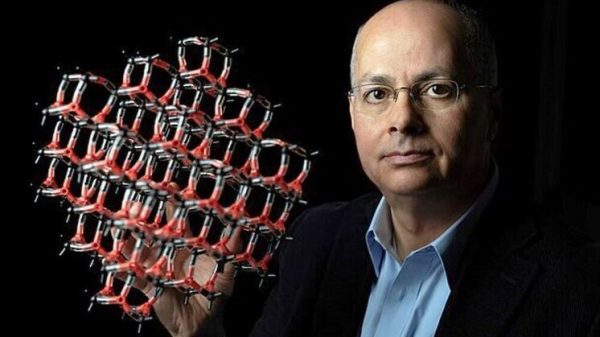 Guys: Demi Moore, Emilio Estevez, Rob Lowe, Andrew McCarthy, Judd Nelson, Ally Sheedy, Mare Winningham in St. Elmo' ; s Fire Credits: Photo 12/Alamy Stock Photo
Guys: Demi Moore, Emilio Estevez, Rob Lowe, Andrew McCarthy, Judd Nelson, Ally Sheedy, Mare Winningham in St. Elmo' ; s Fire Credits: Photo 12/Alamy Stock Photo
“Me and my friends in the Brat Pack didn’t take kindly to celebrities. Success at an early age is much more difficult to cope with than failure.” So mused actor Judd Nelson, looking back on a brief golden period in the mid-eighties when he and several other young successful Hollywood stars became known as «The Pack of Scumbags.» The expression was a nod to the «Rat Pack» of Sinatra, Jerry Lewis, Dean Martin and others, but that's where the similarities ended. Older stars may have been involved in their fair share of hellish mayhem. But they were also, for the most part, consummate professionals who knew how to entertain an audience.
The same could not be said of the group of attractive, hedonistic twenty-something actors who rose to fame simultaneously in the early eighties. The first film in which many of them appeared was Francis Ford Coppola's 1983 crime drama The Outsiders, but subsequent films such as John Hughes's The Breakfast Club and Sixteen Candles helped strengthen the actors' sense of belonging in these films. to an exclusive gang.
However, they met their Waterloo reputation after journalist David Blum wrote a scathing article for New York magazine in June 1985 in which he derided the likes of Emilio Estevez, Judd Nelson, Ally Sheedy and Rob Lowe as untalented amateurs, coining the expression “Hollywood amateurs.” Brother Park.»
Those interviewed took the criticism the wrong way, causing both personal and professional difficulties, and responded poorly to the portrayal of them as an amorphous group. In an attempt to come to grips with the damaging legacy of that period, Andrew McCarthy, an actor who has appeared in several iconic films associated with the group, has now produced a new documentary called «Brats.» It has a simple format: McCarthy called up his Eighties co-stars and sat down to chat about the era. The only key figures missing are Nelson and Molly Ringwald, who declined to participate.

Most of those he speaks to look back on their formative years with a mixture of fondness and nostalgia. He also speaks with Blum, who claims that the original article was simply “doing my job as a journalist” and wryly suggests of the article: “I’m proud of it, that’s okay. I do not regret anything. I'm glad it lived forever. But I hope it's not the best thing I've ever done.»
This feature film was released just a few weeks before perhaps the most famous of all Brat Pack films, St. Elmo's Fire, which was released on June 28, 1985. The film was directed by Joel Schumacher, who would later become famous for his photographs of Batman. , but then he was considered a talented, promising director. It also focuses on slightly older teenage characters from earlier Brat Pack films, such as John Hughes' The Breakfast Club, released earlier that year, revolving around recent Georgetown University graduates who are entering adulthood but still searching for comfort in each other's company. in their favorite drinking establishment, St Elmo's Bar, which gave the picture its little-known title. (This is also a nautical term for the phenomenon of glowing balls of plasma clinging to a ship's rigging, which is generally seen as a good omen.)
Andrew McCarthy and Demi Moore in St. Elmo's Fire. Photo: Entertainment Pictures/Alamy Stock Photo
The difficulty that the Pack of Boys now faced, despite or because of the success of The Breakfast Club and the fame of Blum's article, was that they were viewed as an elite within an elite. It didn't help that the St. Elmo's Fire script, co-written by Schumacher, was described by a studio executive as «featuring the most disgusting people he'd ever read.» Although hundreds of actors auditioned, John Hughes' recommendation of his Breakfast Club stars Estevez, Sheedy and Nelson carried weight, and so they were chosen along with McCarthy, Rob Lowe, Andie MacDowell and Demi Moore.
Moore's casting proved to be one of the most difficult aspects of the film from a production standpoint. She rose to fame with a starring role in the soap opera General Hospital and an early appearance in the Michael Caine sex comedy Blame It on Rio (1984). But her early fame led to her addiction to alcohol and drugs, and so by the age of 22 she had already endured a failed marriage to an older man and a spell in rehab.
On the set, Moore was accompanied at all times by a sober companion who kept her out of temptation and trouble, but she had to fight to save her career. While she was undergoing treatment, she was offered a role and was immediately discharged again. The doctors asked her: “Yes, but what is more important to you: cinema or your life?” To which Moore, every inch the star, responded: “The movie! Come on, what are you talking about?” She later explained this behavior as a mixture of ambition and lack of any concern for her well-being. “My need to please was definitely on high alert,” she said.

She found herself in good company. The ambitious cast saw the film as an opportunity to move away from John Hughes-era teen roles and instead play characters on the cusp of adulthood, leading to some hilarious and pompous statements from the actors. Nelson said: “I think I'll probably get a lot of criticism. My personality is very direct, very conservative, very career oriented. I think after The Breakfast Club people will say I should have played another street punk. They will criticize me for not doing what I'm good at, for trying something new.» Meanwhile, his on-screen girlfriend Sheedy, who widely agreed to give the film's best performance, expressed relief at the new challenges she faced, saying of her character, an aspiring architect, that «it's nice to play someone who's not that not defined by who her boyfriend is or what her body looks like.”
Meanwhile, Moore acted distant from the whole affair. As Jules, a banker and party animal who has an affair with her married, older boss, she said in an interview to promote the film that she was «annoyed» by her performance, which she found «too overbearing, too overwhelming». (Anyone who has seen Schumacher's later films knows that OTT performances were a hallmark of his films.) However, she reserved her biggest ire for the Brat Pack nickname that brought her and her co-stars together. «I hate this!» she stated. “I find it embarrassing, hateful and humiliating.” Moore, who was by then romantically involved with Estevez, called Blum's article a «lie,» saying Lowe and Estevez's friendship had suffered as a result, and asked, «Why do people have to call me names?»
 Classic movie poster. Photo: Everett Collection Inc/Alamy Stock Photo
Classic movie poster. Photo: Everett Collection Inc/Alamy Stock Photo
St. Elmo's Fire was a significant box office success and enormously helped the careers of its stars, many of whom reunited for later Brat Pack projects such as 1986's About Last Night and the Hughes-scripted Pretty in Pink (1986). However, critical response to the film was almost entirely dismissive: David Denby of the New Yorker called it «a TV sitcom without jokes» and said that it was «not a drama, it's gossip and especially early-teenage gossip — a film designed to so they can sort it out over the phone.”
Schumacher's concerns that the characters were unlikable were echoed by New York Times film critic Janet Maslin, who called them «spoiled, rich and insufferably smug.» But she also acknowledged the charisma of the young cast, saying: “St. «Elmo's Fire is at its most compelling when it simply gives the actors a chance to flirt with the camera and with each other.»
 Cast of the film «St. Elmo's Fire» Author: Alami
Cast of the film «St. Elmo's Fire» Author: Alami
In the years since its release, St. Elmo's Fire has occupied a strange place in Eighties Hollywood. It should be commended for attempting to tackle mature themes such as infidelity and heartbreak, no matter how half-heartedly and half-heartedly it does so, and for showcasing its cast to the best of their ability. Yet many of the storylines feel woefully outdated. Estevez's character spends much of the film creepily stalking medical student McDowell, whom he eventually forcibly kisses while her boyfriend is in the same house, while Moore's now remorseful party girl plans to commit suicide with a new method of freezing herself to death. in her apartment, the scene is played for laughs.
Estevez himself admitted that the more humane, less egocentric The Breakfast Club was a superior film, saying of St. Elmo's Fire that his character's stalker tendencies would be omitted today and that «I know people hold it as fond memories , but it's not a Great Movie.» He's absolutely right. Still, for all its artistic flaws, it's a fascinating time capsule with its gilded stars who, for a brief moment, seemed to represent the new generation taking over Hollywood.
Blum's description of them as Brat Pack may have been disdainful, but it caught on like few others, and captures — almost accidentally — the giddy thrill of youth immortalized on screen, before the harsh realities of real life hit the characters. , and the actors, then.
What happened to the Brat Pack? Emilio Estevez
The group's «unofficial president» may have sometimes been better known as Martin Sheen's son and Charlie's brother, but he has worked consistently for decades since then. He changed direction with the 1996 drama «The War at Home» and has since made several critically acclaimed films, including the 2006 biopic «Bobby,» about the lead-up to the 1968 assassination of Robert F. Kennedy. Although his relationship with Moore ended in 1986, they remained friends and she was in the cast of Bobby, among many others.
 Emilio Estevez: the group's «unofficial president» Credit: Everett Collection Inc/Alamy Stock Photo Rob Lowe
Emilio Estevez: the group's «unofficial president» Credit: Everett Collection Inc/Alamy Stock Photo Rob Lowe
Lowe was at one time considered the biggest star of his generation, but his reputation waned after he was implicated in a sex tape scandal with a 16-year-old girl during his time — like many of the Brat Pack. — He drank heavily. His career later rebounded with a starring role in The West Wing (opposite Estevez's father), and since then he has continued to star in high-profile television roles and often self-parodying film appearances. His gift for comedy was on full display in Steven Soderbergh's Liberace biopic Behind the Candelabra, in which he played a comically grotesque plastic surgeon.
 Rob Lowe: He was once considered the biggest star of his generation. Photo: Everett Collection Inc/Alamy Stock Photo Demi Moore
Rob Lowe: He was once considered the biggest star of his generation. Photo: Everett Collection Inc/Alamy Stock Photo Demi Moore
In an interview during the release of St. Elmo's Fire, Moore joked, «Demi Moore, my dear, will never be a star.» Subsequent developments, including marriage to Bruce Willis and hits such as “Ghost” and “A Few Good Men,” sharply challenged this notion until Moore was paid $12.5 million for her role in the flop comedy “Striptease” in 1996. She then moved away from major leading roles and became a more established character. her work, and her return to the Cannes premiere of Substance this year as an aging movie star switching places with her younger counterpart drew huge acclaim.
 Emilio Estevez and Demi Moore Authors: Vinny Zuffante, Andrew McCarthy
Emilio Estevez and Demi Moore Authors: Vinny Zuffante, Andrew McCarthy
Ironically, given that he has now directed a documentary about the Brat Pack, McCarthy was never one of its core members, and the original New York article did mention him disparagingly; perhaps this gave him the necessary element of detachment to chronicle the group. Since the eighties, he has consistently worked as both an actor and director, starring in films such as Mrs. Parker and the Vicious Circle and The Joy Luck Club, as well as directing episodes of popular TV series such as The Blacklist and Orange is the hit of the season.» He is also a writer and has published several travel memoirs and a young adult novel.
 Ally Sheedy, Judd Nelson and Andrew McCarthy Photo: Everett Collection Inc/Alamy Stock Photo Judd Nelson
Ally Sheedy, Judd Nelson and Andrew McCarthy Photo: Everett Collection Inc/Alamy Stock Photo Judd Nelson
It must have hurt Nelson that Blum's reporting simply described him as «overrated», but his subsequent career was less impressive than that of his peers. Today, he is perhaps best known for his voice work, playing the character Rodimus Prime in several animated Transformers films, but has also appeared in supporting roles in popular television series such as Empire and Two and a Half Men. Oddly enough, he appeared in two separate dramatizations of the Billionaire Boys Club scandal; once in the eighties as master criminal Joe Hunt, and then in the 2018 film as Hunt's father Ryan.
 Ally Sheedy and Judd Nelson Photo: Everett Collection Inc/Alamy Stock Photo Ally Sheedy
Ally Sheedy and Judd Nelson Photo: Everett Collection Inc/Alamy Stock Photo Ally Sheedy
Sheedy starred in so many iconic '80s films—not just Brat Pack, but also the beloved Matthew Broderick film WarGames and the less-loved robot comedy Short Circuit—that she's often considered the quintessential actress of the era. Which is why her highly acclaimed performance in 1998's High Art, in which she plays a middle-aged lesbian photographer, showed that she had far more range and talent than her previous roles had allowed her to display. Unfortunately, she has yet to deliver some of that depth and interest, and as a result, she will forever be a Brat Pack actress.
 Mare Winningham, Demi Moore and Ally Sheedy Photo: Moviestore Collection Ltd/Alamy Stock Photo Molly Ringwald
Mare Winningham, Demi Moore and Ally Sheedy Photo: Moviestore Collection Ltd/Alamy Stock Photo Molly Ringwald
Sheedy and Molly Ringwald recently reunited on screen for an episode of the comedy Single Drunk Woman, in which they played sisters-in-law. It was a nice reunion for both of them, but Ringwald had always been more annoyed by the expectations of being a teen idol than most members of the Brat Pack, and he dealt with it in spectacular fashion. After appearing in Jean-Luc Godard's experimental film King Lear, she moved to Paris, learned French and has since acted primarily in French films, returning to the United States from time to time for television roles in series, including the recent the award-winning Jeffrey Dahmer Show. Dahmer — «Monster» and Truman Capote's drama «Feud» with Demi Moore.
 Ally Sheedy and Molly Ringwald at The Breakfast Club Photo: Universal Pictures/Getty Images Anthony Michael Hall
Ally Sheedy and Molly Ringwald at The Breakfast Club Photo: Universal Pictures/Getty Images Anthony Michael Hall
Perhaps more than every other actor Anthony Michael Hall was inextricably linked to John Hughes, who directed him in Sixteen Candles, The Breakfast Club and Weird Science. As he stepped away from Hughes' work, turning down roles in Ferris Bueller's Day Off and Pretty in Pink, a chaotic personal life robbed him of work in films like Full Metal Jacket and Bull Durham. He later returned with high-profile roles in Edward Scissorhands and Six Degrees of Separation, and more recently is perhaps best known for his appearance as news reporter Mike Engel in The Dark Knight.
 The Breakfast Club: Judd Nelson, Molly Ringwald, Ally Sheedy, Emilio Estevez, Anthony Michael Hall Photo: United Archives GmbH/Alamy Stock Photo
The Breakfast Club: Judd Nelson, Molly Ringwald, Ally Sheedy, Emilio Estevez, Anthony Michael Hall Photo: United Archives GmbH/Alamy Stock Photo




















































Свежие комментарии